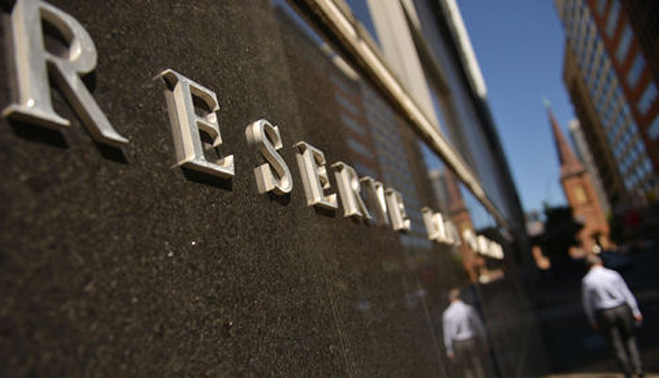![]() Home > World Business
Home > World Business
Australian Rates Can Still Come Down, Top Bond Forecaster Says

![]() May 30th, 2016 | 08:17 AM |
May 30th, 2016 | 08:17 AM | ![]() 1094 views
1094 views
AUSTRALIA
The top forecaster for Australian bonds, the world’s best-performing debt this month after Greece, sees further gains as the central bank cuts interest rates.
“We have, of all the developed countries, perhaps the clearest view that the official interest rate can come down,” said Stephen Roberts, an economist at Melbourne-based advisory firm Laminar Group Pty, who was the most accurate in forecasting the nation’s benchmark yield last year. “The bond market has plenty of potential to perform well.”
Australia’s government debt has rallied 3 percent in the past month, ranking second to Greece’s 11 percent, out of 26 markets based on Bloomberg World Bond Indexes. The central bank cut its benchmark to a record 1.75 percent on May 3, and there’s a 68 percent chance it will lower it at least once more by the year-end, interest-rate swaps indicate.
Signs the local real-estate market is slowing are helping drive forecasts for the central bank to keep reducing rates. Buyers from China, seen as a key driver for home prices in Sydney and Melbourne, are starting to lose interest. In the first four months of the year, visits by potential Chinese purchasers to realestate.com.au’s listings in the state of New South Wales, which has Sydney as its capital, dropped 25 percent from a year earlier.
Most Accurate
Roberts was the most accurate of 15 economists in predicting bond yields in 2015, with the year-end figure coming in two basis points away from the forecast he made 12 months earlier.
He was the most bullish for 2016 in a survey conducted at the end of the first quarter. The market is proving him right, with benchmark 10-year yields dropping to a record 2.20 percent this month. The yield was 2.26 percent on Friday in Sydney.
Roberts’s forecast was for 1.90 percent by year-end. An investor who bought Friday would earn 4.2 percent if that is accurate, based on data compiled by Bloomberg. His projections would push Australian yields below their U.S. counterparts for the first time since 2000, based on his predictions for both markets.
Housing Concern
Stevens said last week regulatory curbs have worked in parts of the market that were showing signs of “exuberance,” driving speculation a cooling in housing will make it easier for the central bank to cut rates. Construction work completed fell for a third quarter in the first three months of the year.
Stevens refrained from cutting after May 2015 amid concern lower rates would fuel a surge in house prices in Sydney and Melbourne.
Though Australia is adding jobs, annual wage growth of 2.1 percent in the first quarter was the slowest on record, based on government data going back to 1998.
Demand for Australia’s debt will probably decline as the yield premium over Treasuries shrinks, said Tsutomu Komiya, a bond investor at Daiwa Asset Management in Tokyo. The company had $119 billion in assets as of March 2015, the most recent figure on the company’s website.
“It acts as a ceiling,” he said.
The extra yield on Australia’s 10-year bonds over similar-maturity Treasuries shrank to 42 basis points last week, the narrowest this year.
Source:
courtesy of BLOOMBERG
by Wes Goodman
If you have any stories or news that you would like to share with the global online community, please feel free to share it with us by contacting us directly at [email protected]